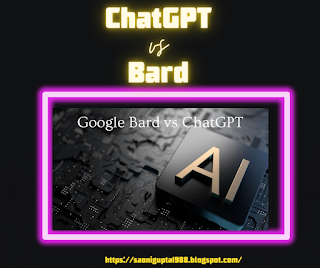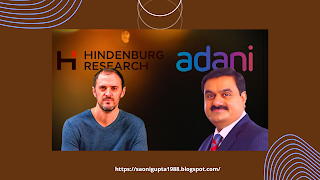Tap, Watch, Enjoy: Social Media as an Entertainment Powerhouse
Introduction
In the era of digitalization, social media has transformed from a mere communication tool to a powerful platform that entertains billions of users worldwide. Gone are the days when traditional media held a monopoly over the entertainment industry. Social media platforms such as Facebook, Instagram, Twitter, YouTube, and TikTok have revolutionized the way we consume and engage with entertainment content. This blog delves into the multifaceted aspects of social media as an entertainer, exploring its impact on society, the rise of influencers, the evolution of content creation, and the challenges it poses. Let's dive into this captivating subject.
I. Social Media: A Paradigm Shift in Entertainment Consumption
A. The Changing Landscape of Entertainment Consumption
Social media has played a significant role in reimagining and transforming traditional entertainment formats in several ways. Traditional media and social media are two distinct forms of media that serve different purposes and have unique characteristics. Here's a comparison between the two:
Audience Reach: Traditional media include platforms such as television, radio, newspapers, and magazines, which have traditionally had a broad reach and can target a wide audience. On the other hand, social media platforms like Facebook, Twitter, Instagram, and YouTube also have a vast user base, but their reach and targeting capabilities can be more specific, allowing content to reach niche audiences.
Advertising and Revenue: Traditional media has relied on advertising as a primary source of revenue. Advertisers pay for ad placements in newspapers, TV commercials, and radio slots. Social media platforms have also adopted advertising models, but they offer more targeted advertising options due to the data they collect from users. This allows for precise audience targeting and a higher potential for engagement.
Speed and Timeliness: Social media platforms excel at delivering real-time information and updates. News and events can spread rapidly on social media, enabling users to stay updated with current affairs as they happen. Traditional media often has a longer production cycle and may not be as immediate in delivering breaking news, although it provides more in-depth analysis and investigative reporting.
Content Control: Traditional media outlets have editorial control over the content they produce. They follow a set of journalistic standards and ethics to ensure accuracy and credibility. Social media, however, allows anyone to create and share content, leading to a diverse range of information sources. While this offers more freedom of expression, it also means that social media platforms face challenges in moderating and fact-checking content.
B. Social Media Platforms as Entertainment Hubs
Social media platforms have indeed transformed into entertainment hubs over the years. While their primary purpose is to facilitate communication and social networking, they have evolved into multifaceted platforms that offer a wide range of entertainment options. Here are some ways social media platforms have become entertainment hubs:
Video Content: Platforms like YouTube, Instagram, TikTok, and Facebook have become popular destinations for video entertainment. Users can find a diverse range of content, including vlogs, comedy skits, music videos, tutorials, and more. Many content creators have built successful careers solely on social media platforms.
Live Streaming: Social media platforms have integrated live streaming capabilities, allowing users to broadcast live videos in real-time. Platforms like Facebook Live, Instagram Live, and YouTube Live have become popular for live performances, Q&A sessions, product launches, and behind-the-scenes glimpses of various events.
Short-form Content: The rise of platforms like TikTok, Instagram Reels, and Youtube Shorts has popularized short-form content, consisting of videos lasting a few seconds to a minute. These platforms have become go-to destinations for quick, entertaining videos, often featuring dances, lip-syncing, comedy skits, and creative challenges.
Memes and Viral Content: Social media platforms are breeding grounds for memes and viral content. Memes often spread rapidly, and platforms like Twitter, Reddit, and Instagram are hotspots for meme sharing. Memes have become a form of entertainment, offering humor, relatability, and cultural commentary to users.
Podcasts and Audio Content: Social media platforms like Spotify, YouTube, and Twitter Spaces have incorporated audio-based features, promoting podcasts, audio shows, and live audio discussions. Users can discover and listen to a wide range of audio content, including interviews, storytelling, educational podcasts, and more.
News and Information: While not purely entertainment-focused, social media platforms have become significant sources of news and information. Users often rely on platforms like Twitter and Facebook to stay updated on current events, follow their favorite news outlets, and engage in discussions around various topics.
II. The Emergence of Social Media Influencers
A. Defining Social Media Influencers
Social media influencers are individuals who have established credibility, popularity, and expertise in a particular niche or industry through their online presence and engagement on social media platforms. They have developed a significant following and are capable of influencing the opinions, behaviors, and purchasing decisions of their audience.
Social media influencers typically have large numbers of followers on platforms such as Instagram, YouTube, TikTok, Twitter, or Facebook. They often create and share content related to their area of expertise, such as beauty, fashion, fitness, travel, technology, gaming, or any other topic of interest. Their content can take various forms, including photos, videos, blog posts, podcasts, or live streams.
B. Influencers and their Effect on Entertainment Consumption
Social media influencers have had a significant effect on entertainment consumption, transforming the way people discover, engage with, and consume various forms of entertainment content. What sets social media influencers apart is their ability to connect with their followers on a personal level.
They engage with their audience by providing valuable and entertaining content, interacting through comments and direct messages, and sharing their thoughts, experiences, and recommendations. Their followers trust their opinions and look to them for advice, inspiration, and entertainment.
In addition to their organic reach, influencers may collaborate with brands and businesses to promote products or services to their audience. Influencers may participate in marketing campaigns, sponsored posts, or collaborations to generate awareness and drive engagement for movies, TV shows, music releases, or live events.
Their involvement in these campaigns can significantly impact the visibility and success of the associated entertainment content. Overall, social media influencers have emerged as influential tastemakers and trusted sources of entertainment recommendations and opinions.
III. The Evolution of Content Creation on Social Media
A. The Proliferation of Micro-Content and Bite-Sized Entertainment
In recent years, there has been a proliferation of micro-content and bite-sized entertainment on social media platforms. This trend has emerged due to evolving user behaviors, the popularity of mobile devices, and the need for quick, easily digestible content.
Creators and brands recognize the importance of delivering content that aligns with these trends, capturing users' attention in a world saturated with information, and providing entertainment experiences that can be consumed conveniently in brief moments.
The increasing popularity of social-media platforms such as Snapchat, TikTok, Instagram Reels, and YouTube Shorts has significantly contributed to the growth of short-form video content in recent years. Short-form videos cater to users' preferences for quick and easily digestible content.
With attention spans becoming shorter, users find it more convenient to consume videos that deliver engaging and entertaining experiences in a shorter time frame. This social aspect encourages engagement and encourages creators to produce more content, building a loyal fan base.
Short-form videos align with the mobile-first experience, as smartphones have become the primary device for social media consumption. These videos are optimized for vertical viewing and can be easily viewed and shared on mobile devices, allowing users to access and engage with them on the go.
The compact nature of micro-content allows users to consume it effortlessly on their mobile screens. The use of music and sound adds an additional layer of entertainment and emotional appeal to short-form videos.
B. Social Media in Reimagining Entertainment Formats
Social media has facilitated the expansion of storytelling across multiple platforms. Traditional entertainment formats such as movies, TV shows, or books can extend their narratives through social media accounts, websites, or alternate reality games. This transmedia approach allows fans to engage with the story world beyond the confines of a single medium, creating a more immersive and interconnected
Social media platforms have also introduced interactive features to enhance user engagement. Features like polls, quizzes, questions, live streaming, and augmented reality filters encourage audience participation and provide more immersive experiences. Creators leverage these tools to involve their audience, gather feedback, and create interactive content that generates higher levels of engagement.
Overall, social media has revolutionized traditional entertainment formats by providing new avenues for content creation, engagement, and distribution. It has blurred the lines between creators and audiences, transformed passive consumption into interactive experiences, and allowed for greater fan participation in shaping the entertainment landscape.
Conclusion
Social media has transformed into a prominent entertainer, disrupting the traditional entertainment industry. With its vast impact on society, the rise of influencers, and the evolution of content creation, social media has revolutionized the way we consume entertainment. As we navigate this digital revolution, it is essential to embrace the opportunities while being mindful of the challenges. Together, as users, content creators, and industry stakeholders, we can shape the future of social media as an entertainer, ensuring responsible and enjoyable entertainment experiences for all.
.png)
.png)





Very helpful 👍
ReplyDeleteThank you so much !!! 😊
Delete